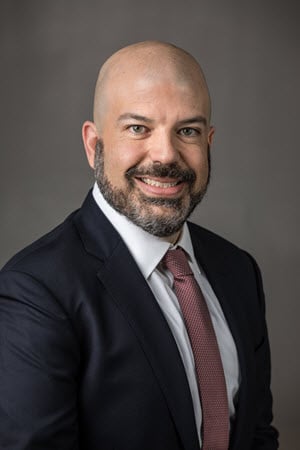Water professionals on the front lines in the water and wastewater sector, especially those in maintenance and facility operations, may not have the option of working from home during shutdowns like those caused by the coronavirus outbreak. In addition, each member has technically specialized knowledge unique to their community systems.
As stay-at-home orders continue for many weeks, the complications for continuing operations might change or intensify.
What happens if a team member’s unplanned absence lasts several weeks or if multiple staffers are out simultaneously? Temporarily losing a team member’s knowledge can pose serious challenges.
Here are some ways to minimize the risks and mitigate the challenges:
Leverage Technology - Segregate and Communicate
Divide operations and maintenance teams and bolster communications to minimize the risk and impact to the whole staff if one team member becomes sick. When possible, evaluate the potential to split operations and maintenance shifts to reduce the staff at the facility at any one time.
Unless in-person meetings are necessary, use video conferencing applications that allow for screen sharing to facilitate knowledge transfer at a distance. Utilities have also planned for teams to shelter in place at treatment facilities to ensure service while minimizing the risk of their staff’s exposure while off duty.
Work with your IT and OT department(s) to harden critical systems and maintain the highest level of cybersecurity, and additionally work with staff to ensure proper training on systems for remote access.
Invest in your Institutional Knowledge Base
Water utilities operate critical infrastructure that is expansive and complex. Operations and maintenance manuals, record drawings, GIS systems, asset management systems, and standard operational procedures are vital repositories of institutional knowledge but can become outdated. Verify these items are up-to-date and accessible.
Host a video conference to share a high-level overview of the contents and the location with all team members. Sharing this information helps prepare the team for any emergency but especially with the current situation. It also will give the team confidence that if the information and processes are acted upon, the desired outcomes would be achieved.
In a pinch, the most practical and expedient update will be helpful, but consider a long-term strategy for keeping these resources up to date and accessible.
Go ahead and fix it
When budgets are lean and there are other priorities, team members adapt. Your operations and maintenance staff have learned to deal with “it,” whatever “it” is. Develop a list of critical repair items, prioritize the list, and begin working down the list. Repairing these critical items now, before the crisis intensifies, puts you on firm ground to operate and allows your facility teams to focus on other items.
Make AWIA 2018 Compliance Count
On Oct. 23, 2018, America’s Water Infrastructure Act (AWIA) was signed into law. AWIA Section 2013 requires community (drinking) water systems serving more than 3,300 people to develop or update risk assessments and emergency response plans (ERPs). The law specifies the components that the risk assessments and ERPs must address and establishes deadlines by which water systems must certify to EPA completion of the risk assessment and ERP.
Collect the lessons learned in your community’s responses to emergencies and make compliance with AWIA 2018 Section 2013 count for your teams and community. Learn more here:
- America’s Water Infrastructure Act: Risk Assessments and Emergency Response Plans
- U.S. EPA Risk and Resilience Assessment and Emergency Response Plans Fact Sheet
Management, operations and maintenance teams have an amazing ability to come together and make a facility function. Now, more than ever, we appreciate you all on working hard to ensure that a safe supply of water is provided and that our water resource recovery facilities continue to operate and maintain compliance.
Coronavirus Resources
WEF
Current Priority: Coronavirus
American Water Works Association
COVID-19 Resources
Association of State Drinking
Water Administrators
COVID-19 Resources
U.S. Centers for Disease Control
U.S. Department of Homeland Security
Guidance on the Essential Critical
Infrastructure Workforce


 Wick Warden, PE, is Freese and Nichols’ Treatment Discipline Leader for Water/Wastewater Treatment & Reuse for Oklahoma and Arkansas. He is a 2019 graduate of WEF’s Water Leadership Institute.
Wick Warden, PE, is Freese and Nichols’ Treatment Discipline Leader for Water/Wastewater Treatment & Reuse for Oklahoma and Arkansas. He is a 2019 graduate of WEF’s Water Leadership Institute. James Naylor, PE, is Freese and Nichols’ Water Treatment Discipline Leader in the Water Purification and Resource Recovery group, based in Dallas.
James Naylor, PE, is Freese and Nichols’ Water Treatment Discipline Leader in the Water Purification and Resource Recovery group, based in Dallas.